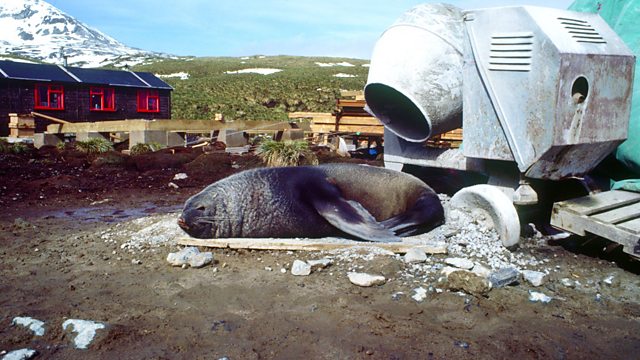Ocean Governance
The earth is mostly covered by seawater, yet most of the world's oceans are ungoverned. Monty Don asks who is responsible for the life in the sea.
The earth is mostly covered by seawater, yet most of the world's oceans are ungoverned - they are the largest of commons in the world. In today's Shared Planet we ask who is responsible for the life in the ocean? Featuring a field report from Scotland, Monty Don explores the problems faced by life trying to compete with us for resources in an area with little or no regulation. The Isle of May is home to a quarter of a million seabirds in the breeding season, yet come the winter months most disperse out to the open sea to spend weeks at the mercy of storms and cold weather. The birds need a rich food supply to survive, yet the fish stocks and all other life in the sea is at the mercy of humanity. Suffering from what is known as "The Tragedy of the Commons", no one owns the oceans and therefore no one has responsibility for them, they are open to exploitation from many nations. Can the seabirds, whales, dolphins, turtles and all the other life that lives in the open ocean be protected? And if so by whom?
Producer Mary Colwell.
Last on
Sylvia Earle

Called βHer Deepnessβ by the New Yorker and the New York Times, a βLiving Legendβ by the Library of Congress, and Time Magazineβs first βHero for the Planet,β Sylvia Earle, has led more than 100 expeditions as an oceanographer and explorer, authored 180 publications, and lectured in 80 countries. She is Explorer in Residence of the National Geographic Society, Leader of the Sustainable Seas Expeditions, Council Chair for the Harte Research Institute, Founder of Mission Blue and the SEAlliance, and formerly the Chief Scientist of NOAA. She has founded three companies, is a Founding Ocean Elder, an IUCN Patron of Nature and served on various corporate and non-profit boards including Kerr-McGee, Dresser Industries, Oryx Energy, WWF US and International, Aspen Institute, Conservation International and the Woods Hole Oceanographic Institution. She is a Founding Ocean Elder and an IUCN Patron of Nature. A graduate of St. Petersburg College and Florida State University with MA and PhD from Duke University she has 22 honorary doctorates and more than 100 national and international awards including the 2009 TED Prize, the Netherlands Order of the Golden Ark, the Academy of Achievement and in 2011 the Dominican Republicβs Medal of Honor, the Royal Geographical Societyβs Patronβs Medal, and Australiaβs SIMS Green Leadership Award.
Μύ
Image courtesy of Kip Evans.
Paul Martin

The Rt Hon Paul Martin was Prime Minister of Canada from 2003 to 2006 and Minister of Finance from 1993 to 2002. He was named the inaugural chair of the Finance Ministersβ G20 in 1999.Μύ Mr Martin chairs the $200m British-Norwegian poverty alleviation and sustainable development fund for the 10-nation Congo Basin Rainforest. He sits on the Advisory Council of the Coalition for Dialogue on Africa, sponsored by the African Union, the UN Economic Commission for Africa and the African Development Bank.
In Canada, he is responsible for the Martin Aboriginal Education Initiative, and he founded, with his son David, the Capital for Aboriginal Prosperity and Entrepreneurship Fund.
Before entering politics, Mr Martin had a distinguished career in the private sector as a business executive at Power Corporation of Canada and as Chairman and Chief Executive Officer of The CSL Group Inc.Μύ Mr Martin studied philosophy and history at St Michaelβs College at the University of Toronto, and is a graduate of the University of Toronto Law School. He was called to the Ontario Bar in 1966.
Callum Roberts

Broadcasts
- Tue 28 Jan 2014 11:00ΒιΆΉΤΌΕΔ Radio 4
- Mon 3 Feb 2014 21:00ΒιΆΉΤΌΕΔ Radio 4
Learn about habitats with The Open University
Explore the twists and connections of natural life in four different UK habitats.

